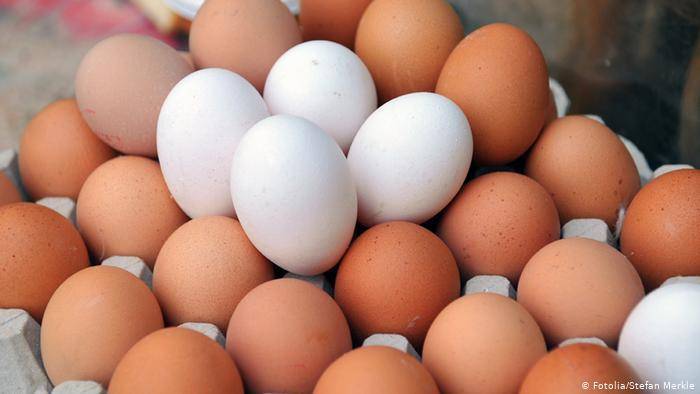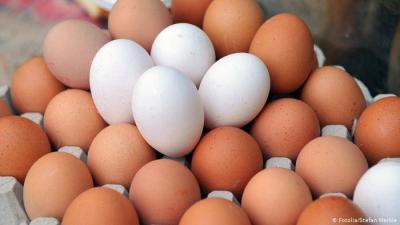There are conflicting beliefs about the nutritional value of eggs regarding whether white eggs are more beneficial than brown ones. This debate is often influenced by their prices, with brown eggs generally being sold at a higher price. Many people assume that the higher price is associated with greater nutritional value, leading them to prefer brown eggs when buying.
Experts explain that the price of eggs is related to the amount of food consumed by the hens. Red hens, which produce brown eggs, consume more feed than white hens that produce white eggs due to purely economic and genetic reasons. In the West, particularly in Europe, markets sell eggs from chickens that have been fed organic feed, which is untreated with chemicals; this type of white egg is the most expensive compared to others, whether white or brown.
There is also a difference in the composition of brown eggs, as they contain more beneficial omega-3 fatty acids than their white counterparts. However, the difference is not significant enough to be easily noticeable, according to animal science expert Troy Boi from Cornell University, as stated by Business Insider.
Russian nutritionist Tamara Brontseva mentions in an interview with Sputnik Radio that eggs are a storehouse of vitamins and minerals. They contain vitamins A, E, B9, D, as well as calcium, potassium, phosphorus, iron, zinc, selenium, and choline, which helps regulate cholesterol levels. Brontseva also notes that many common beliefs about the quality and benefits of eggs do not align with reality. For instance, there is a widespread belief that a darker yolk is more beneficial, which is incorrect, as the yolk's color depends on the feed composition. She explains that a lighter yolk might actually indicate better quality or healthiness, as it suggests the feed was of a complete type.
The same applies to the eggshell color: the external color of the egg does not impact the quality of the product at all. The chemical composition of eggs again depends on the feed. Brontseva points out that if we take standard classic eggs from the C0 or C2 categories, we can't really say that one type of egg is more beneficial than another, as they are all nearly identical in chemical composition. It ultimately depends directly on the nutrition.
Additionally, she advises that chicken eggs should be washed just before cooking, as exposing them to water for too long shortens the product's shelf life and does not affect the size or color of the yolk or eggshell in relation to their quality.




